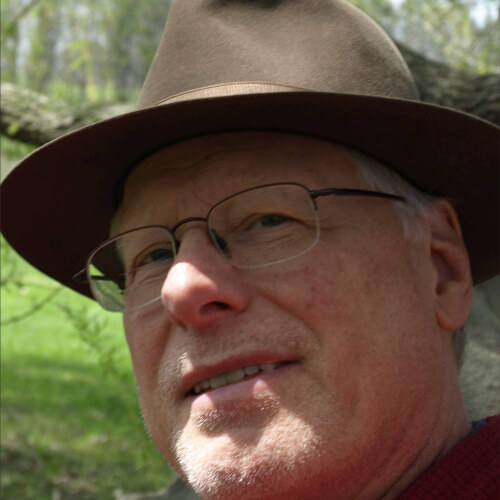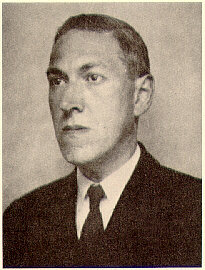In a few weeks I’ll be launching a new paranormal series: the Pierce Mostyn Paranormal Investigations. The books were fun to write and I’ve gotten positive feedback from my beta readers. I’m totally psyched about Mostyn!
There were three major influences in the creation of Pierce Mostyn and the uber-secret Office of Unidentified Phenomena (OUP): The X-Files, Stranger Things, and HP Lovecraft.
The X-Files, influenced by the earlier Kolchak: The Night Stalker, takes us into a world of paranormal phenomena, aliens, and government cover-ups. The conspiracy nut within me loves that stuff.
Stranger Things, the exceedingly popular paranormal show from Netflix, riffs on Lovecraft’s premise behind the Cthulhu Mythos and secret government projects.
Then there’s HPL himself. His notion of the insignificance of human beings vis-a-vis the vastness of the universe is the foundation of the cosmic horror sub-genre, which he created. His stories often hint at cover-ups, usually government, to protect people from the truth. And just as often there is a whistle blower to let us know what is really going on.
Lovecraft modernized the old gothic tale by expanding the scene from an old haunted house to the entire universe. The Great Old Ones are about to wake. Their worshippers are keeping the light on for them. And us? Why we are inconsequential. We don’t matter.
The horror lies in our insignificance; not the grotesque insanity that is a shoggoth, or the obscene un-naturalness that is Cthulhu.
This is very much like Nietzsche. For he noted in The Birth of Tragedy that science can only bring us to the point where we see that we are nothing when compared to the vast universe. We have as much significance as does a grain of sand on the beach. And the result of our coming to this realization of our insignificance is a profound and sustained nausea.
The terror in cosmic horror is the simple realization that we have no meaning in the grand scheme of things. We just think we do.
Nietzsche made the leap to art to give us meaning. Art, the act of being creative, like the gods, is what gives us humans meaning.
Lovecraft, in an effort to find meaning in the meaningless, retreated into antiquarianism and racial and cultural identity.
Religion, rejected by both Nietzsche and Lovecraft, is nothing more than an attempt to give humans meaning by means of rituals to help insure entrance into a good afterlife, where there is meaning. But not meaning for us as us. Only meaning in relation to something greater than us. That which is called by us God.
Cosmic horror, however, has power because in spite of our belief in God or rituals, we so very often feel as though nothing makes any sense and that we truly have no meaning or purpose in this life. That is true terror: that we will die and everything we’ve done won’t have mattered, because in the end we don’t matter.
Lovecraft created the Great Old Ones to visualize the uncaring of the universe. They don’t care about the humans on this planet they’ve invaded. We are as significant to them as ants are to us.
These are the influences that played upon the creators of The X-Files and Stranger Things and also played upon me in the creation of Pierce Mostyn.
We see in The X-Files that there are things out there, the truth, that are bigger than us. We are living deluded lives, because the truth is being hidden from us.
In Stranger Things, a hole is ripped in the fabric of our dimension as a result of a secret government spy program. The rip allows an interface between our world and the beyond. And what becomes crystal clear very early is that we don’t matter to the other dimensional entity. We are simply another meal source. We are simply ants on the sidewalk.
In the Pierce Mostyn Paranormal Investigations, Mostyn’s (and the OUP’s) job is to get rid of testimonies to our insignificance — all to protect the good people of the USA and the world. Which makes Mostyn something of a superhero and a trickster god (like Loki, or Dionysus, or Kokopelli).
Next week we’ll take a closer look at the cosmic horror sub-genre. Which I think is more terrifying that some grisly hacker/slasher story.
Comments are always welcome, and, until next time, keep telling yourself you have meaning. Oh, and happy reading!
Share This!


“Mostyn’s (and the OUP’s) job is to get rid of testimonies to our insignificance — all to protect the good people of the USA and the world.”
Whoa!
Hey, we are important. Starting off with the presupposition that we’re not doesn’t give the supersleuth much to fight for. (Or did I miss something important!)
Let the supersleuth fight the demons who say we’re not important, or who want to hurt us. Or show them that we bloody well are important!
HPL is a cool looking guy, and a bit spooky to boot!
Hey Andrew! Glad you stopped by!
There is indeed something both cool and spooky about ol’ HPL. 🙂
Well, Mostyn is a bureaucrat, as it were. It’s his job to investigate or fight whatever his boss says to. So his incentive is duty. And in some ways it’s not that the “bad guys” are intrinsically bad, it’s just that they see us as we see ants on a sidewalk. We generally don’t give the ants a second thought. It’s the same with the “bad guys”: they don’t give us a second thought. And while we may interpret that as “evil”, it isn’t necessarily so. From their point of view.
The philosophical rub comes when we contemplate the notion that humans are important. HPL, and Nietzsche, and the Existentialists, would ask you why you think so — given our apparent insignificance when viewed in comparison with the universe. Logically and rationally, they would say, you can’t come to the conclusion we are important. To hold such a position smacks of Whitmanian naiveté.
Ironically, the Stoic and Epicurean schools arose to answer the same question. Alexander the Great had exploded the Hellenistic world from the tiny city-state to the vast reaches of the world. People way back then were contemplating this same question. There is nothing new under the sun.
HPL is essentially in the nihilistic Epicurean camp. I think Stoicism provides a better answer. One that is more rational. Then again that is just my opinion.
In the third installment of this series, you’ll see that philosophically I don’t accept what I think is the key premise of cosmic horror, which is humananity’s insignificance. And if I don’t, then Mostyn probably doesn’t either. 🙂